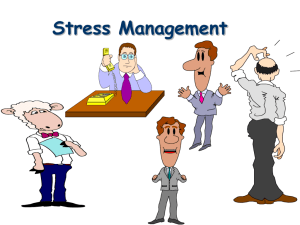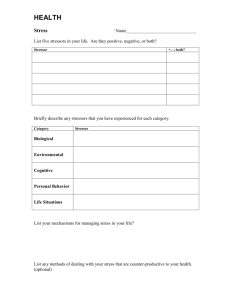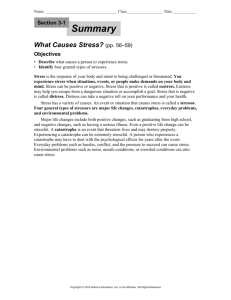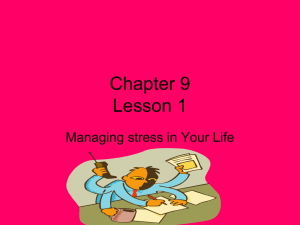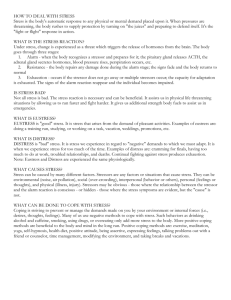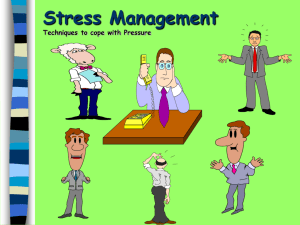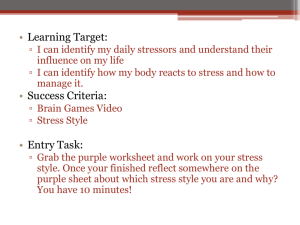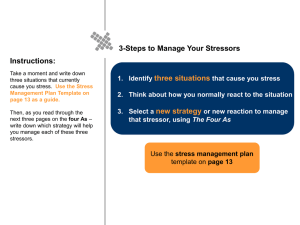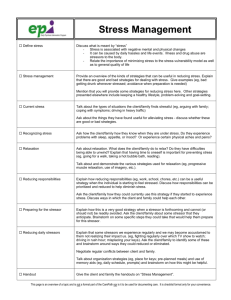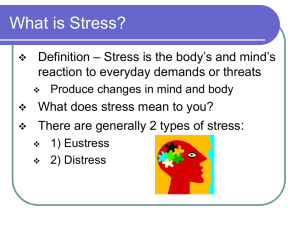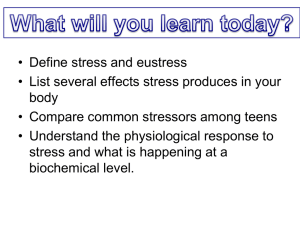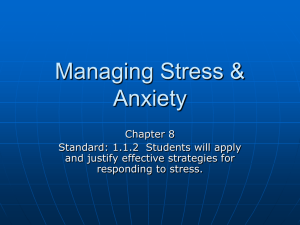Stress and coping
advertisement
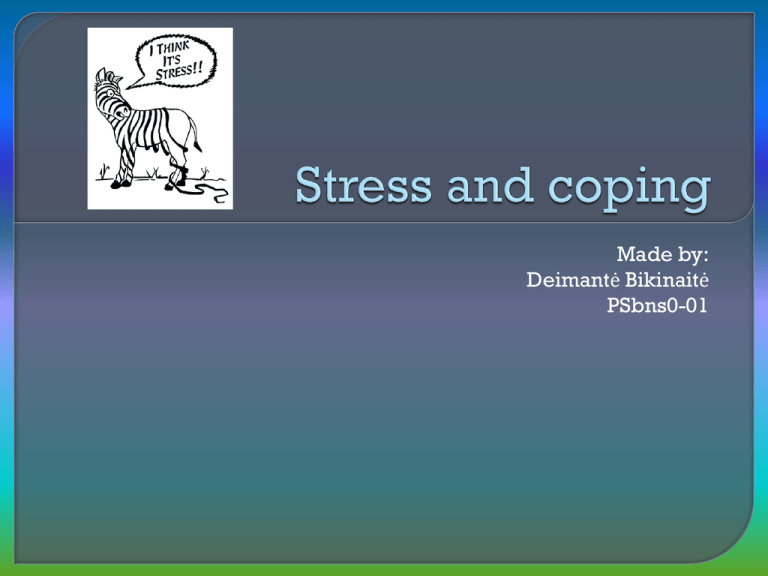
Made by: Deimantė Bikinaitė PSbns0-01 Definitions Types of stress Stressors GAS Coping with Stress Conclusion References Stress is a person`s response to events that are threatening or challenging. Stressor is an agent, condition, or other stimulus that causes stress to an organism. Eustress is the type of stress that is healthy, or gives one a feeling of fulfillment or other positive feelings. Eustress is a process of exploring potential gains. Eustress prepares • the muscles (the blood to pump to the major muscle groups), • heart( increase the heart rate), • mind for the strength needed for whatever is about to occur. Distress is one of the negative types of stress. This is one of the types of stress that the mind and body undergoes when the normal routine is constantly adjusted and altered. The mind is not comfortable with this routine, and craves the familiarity of a common routine. Acute stress -> it is the type of stress that comes immediately with a change of routine. Chronic stress will occur if there is a constant change of routine for week after week. Chronic stress affects the body for a long period of time. Stressors Cataclysmic events Personal Background Cataclysmic events -> Are strong stressors that occur suddenly and typically affect many people at once. Personal stressors -> Major life events that have immediate negative consequences that generally fade with time. Background stressors -> Everyday annoyances that cause minor irritations and may have long – term ill effects. GAS = general adaptation syndrome A theory developed by Hans Selye This theory suggests that a person`s response to a stressor consists of three stages. Stressor l. Alarm and mobilization ll. Resistance lll. Exhaustion Turn a treat into a challenge. Make a threatening situation less threatening. Change your goals. Take physical action. Prepare for stress before it happens. Modern life is full of hassles, deadlines, frustrations, and demands. For many people, stress is so commonplace that it has become a way of life. Stress is not always bad. In small doses, it can help you perform under pressure and motivate person to do best in performance. If a person did not feel any stress, individual would not be alive. Robert S. Feldman. 2009. “Understanding Psychology” (Module 43). http://www.answers.com/topic/stressor#ixzz1 HuRFzaSj http://www.stressfocus.com/stress_focus_articl e/types-of-stress.htm Picture: http://1.bp.blogspot.com/_Utj_NC20lfY/TTIlnKzU7TI/AAAAAAAABPY/YlFStUN8 ro/s1600/Stress-ZebraStripes.gif http://blog.hedayat7.com/wp-content/uploads/2009/12/stress2.jpg
